Positive Sustainability Stories: Spain Closing Coal Plant, UK’s Take …
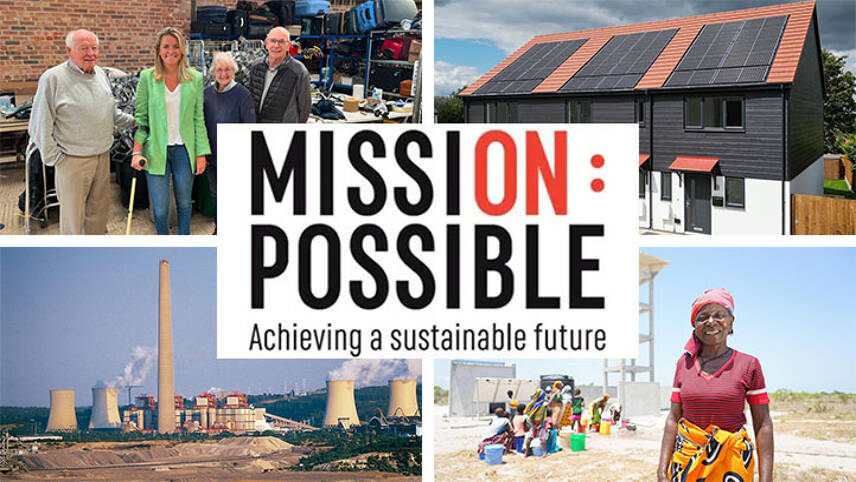
Published every week, this series charts how businesses and sustainability professionals are working to achieve their ‘Mission Possible’ across the campaign’s five key pillars – energy, resources, infrastructure, mobility and sustainability leadership.
Across the UK and across the world, leading businesses, cities, states and regions are turning environmental ambitions into action. Here, we round up five positive sustainability stories from this week.
ENERGY: Spain to close its largest coal power station
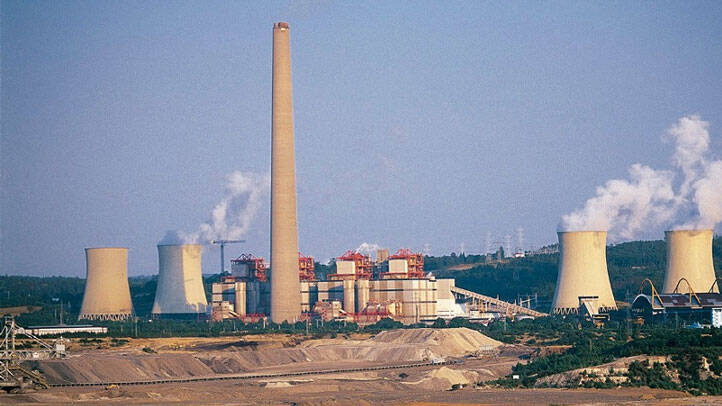
Image: Endesa
Coal is the dirtiest fossil fuel and, while consumption remains high in Asia, it is in irreversible decline in the US and Europe, according to the International Energy Agency (IEA).[1]
The Spanish government this week approved utility Endesa’s proposal to close its As Pontes coal plant by August 2024. The 1.4GW coal power plant in the Galicia regions of North West Spain will be replaced with a portfolio of wind farms to deal with the resulting reduction in electricity generation.
Spain is aiming to host 160GW of wind and solar capacity by 2030 and will end coal-fired electricity generation by this point. It also has a 2035 phase-out date for oil and nuclear power plants. Plans are in place to support workers in the coal and oil industries to transition to lower-carbon sectors.
Commenting on the announcement regarding Pontes, Beyond Fossil Fuels campaigner Alexandru Mustață said: “With the closure of As Pontes, we can now concretely say that coal is no longer required for Spain’s energy security.
“The government’s ambition to bring forward the country’s coal phase-out and massively increase the share of renewables in electricity production in line with the demands of civil society is the right approach.”
Beyond Fossil Fuels is now campaigning for Spain to set out plans to end unabated gas-fired electricity generation.
RESOURCES: UK’s first take-back scheme for mobility aids launches
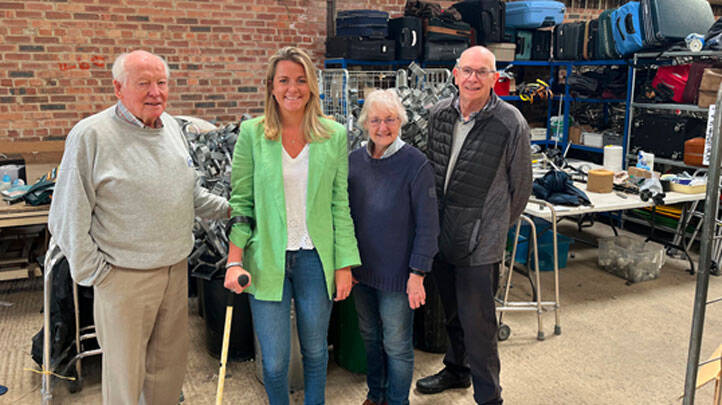
Around one-quarter of British residents have a disability, meaning that millions of households will own mobility aids like crutches and walking sticks. There is certainly not a circular economy for these items; the NHS disposes of £14m worth of mobility aids each year, and a great many more are placed in household or business waste.
Seeking to solve this challenge is Cool Crutches & Walking Sticks. The brand has this summer launched a new scheme enabling unwanted mobility aids to be refurbished and reused. When customers purchase a new item, they will also receive the packaging and postage instructions needed to return their old item.
Collected sticks and crutches are sent to PhysioNet for refurbishment and redistribution. Those beyond repair will be recycled.
Cool Crutches & Walking Sticks’ co-founder and chief executive Amelia Peckham said: “We wanted to introduce a scheme that not only changes the lives of people living with a disability, but also tackle the environmental issues caused by the disposal or discarding of these products. There are millions of people globally who unfortunately don’t have access to mobility aids, and experience difficulties in obtaining preventative care and appropriate treatments. This scheme looks to change that.”
MOBILITY: Veolia rolls out EV technician training scheme
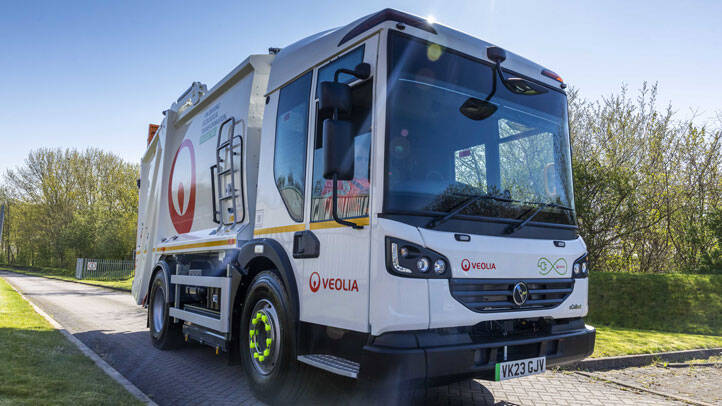
We often cover stories relating to businesses adding electric vehicles (EVs) to their fleets. Just this week, ALD Automotive LeasePlan revealed that EV adoption has more than doubled across all sectors in Europe over the past two years.
What is less discussed is the need to ensure that there is an adequate skills base for the EV transition. Drivers will need to learn new techniques and technicians will need to be upskilled from previous work on petrol and diesel models. In the UK alone, a shortfall of 16,000 EV technicians is anticipated by 2032.
Waste management firm Veolia has, therefore, partnered with Autotech Trainers to provide its workshop teams with accredited EV technician training. The new training pathway is accredited by the Institute of Motor Industry (IMI) and covers repairs and maintenance for pure-electric and hybrid-electric heavy goods vehicles (HGVs). 40 staff members will be trained in the first instance.
Veolia’s fleet director for the UK and Ireland, Alistair McCrindle, said: “As we look to achieve a net-zero fleet by 2040, we know that maintenance is vital.
“It is a great opportunity for our fleet technicians to learn new technology whilst already maintaining a variety of different vehicles, and by training 40 of our technicians we are ensuring we can deliver a zero carbon future fleet.”
THE BUILT ENVIRONMENT: Innovative, energy-efficient homes affordable built in a matter of days
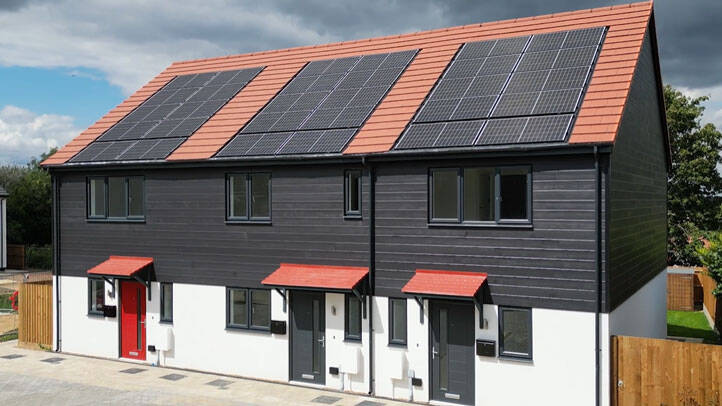
A modern methods of construction (MMC) company capable of constructing family homes in less than a week has handed over the keys to some of the UK’s most energy efficient homes this month. The homes in Wilburton, Cambridgeshire, will be let to social housing tenants by Cross Keys Homes.
The nine homes have an energy performance certificate (EPC) rating of ‘A’, thereby meeting the Future Homes Standard due to come in for 2025 and contributing to the Government’s targets for all homes to rate as EPC ‘C’ or higher by 2035.
Etopia[2], which built the homes, uses panellised, insulated walls to improve energy efficiency and ensure rapid construction. The homes are fitted with solar panels, electric heating and efficient plumbing and lighting to minimize operational energy use and carbon emissions.
Etopia’s head of business development Nicola Clayton said: “We’re driven by a mission to revolutionise the delivery of future-proof homes across the UK.
“We’re in the midst of a climate, housing, and cost-of-living crisis. There aren’t enough homes and there aren’t enough affordable homes that people can rent and afford to heat and live in.
“Only by using systems such as our structural insulated panels that go beyond current regulations, can we deliver zero-carbon homes that are not only sustainable but are also affordable, cheaper, and great places to live.”
SUSTAINABILITY LEADERSHIP: Hogan Lovells forges partnership with WaterAid during World Water Week
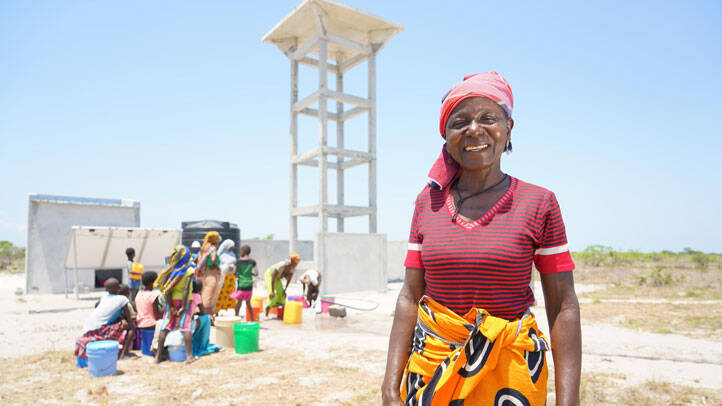
World Water Week has been observed this week. It is a global event aimed at raising awareness about – and driving action to solve – challenges relating to water efficiency, stewardship, access and quality.
It is timely, then, that multinational law firm Hogan Lovells has forged a new partnership with WaterAid to support the delivery of water and sanitation infrastructure to communities most in need – including Cuamba in Mozambique. More than one-third of the population here lack access to clean water and WaterAid is working to implement the infrastructure and awareness-raising needed to boost access.
Hogan Lovells will provide WaterAid with financial support and practical assistance, including pro-bono legal advice, through the three-year partnership. The law firm noted that the partnership will bolster its existing work to align with the UN’s Sustainable Development Goals (SDGs).[3]
Hogan Lovells partner Elaine Penrose said: “As a global law firm, we are committed to delivering pro bono, skilled volunteering and fundraising initiatives that have positive impacts in our communities, society and for the environment.
“We look forward to working with WaterAid over the next three years to progress its mission to provide clean water, sanitation, and hygiene solutions through climate resilient projects with a lasting legacy.”
Published 27th August 2023
© Faversham House Ltd 2023 edie news articles may be copied or forwarded for individual use only. No other reproduction or distribution is permitted without prior written consent.
References
- ^ according to the International Energy Agency (IEA). (www.edie.net)
- ^ Etopia (ukgbc.org)
- ^ the UN’s Sustainable Development Goals (SDGs). (www.edie.net)